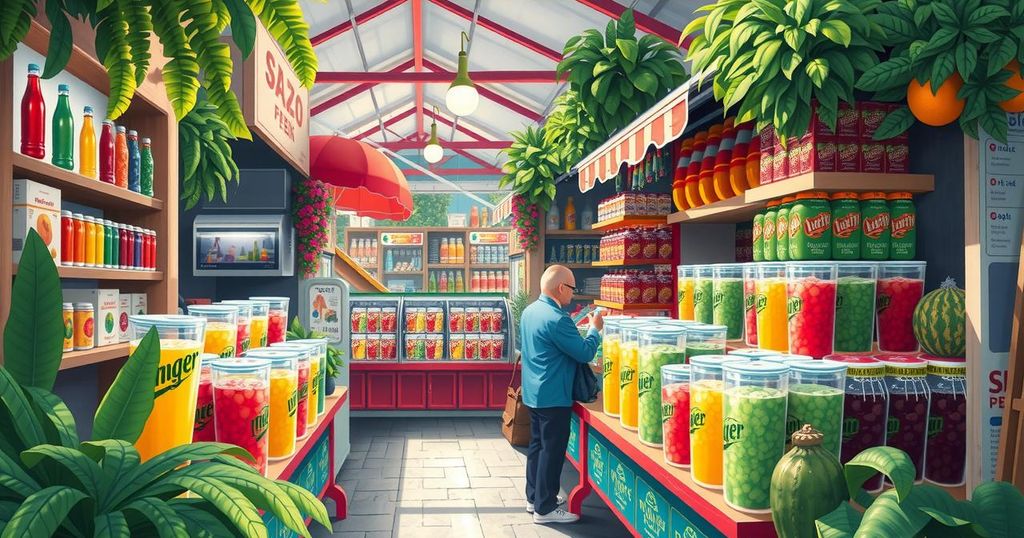The RSF in Sudan is controlling access to gum arabic, a key ingredient for Coca-Cola and Pepsi. This situation arises amid a civil war, leading to humanitarian crises and ethical concerns regarding the payments made to armed groups. These brands are also facing a boycott in the Middle East due to political issues, resulting in declining sales.
Recent reports indicate that Sudan’s Rapid Support Forces (RSF) are controlling access to gum arabic, a critical ingredient used in Coca-Cola and Pepsi products. This organic emulsifier, derived from the sap of acacia trees, is a significant component in various goods, including soft drinks, soap, medicine, sweets, and cosmetics. Approximately 70 percent of the global supply of gum arabic originates from Sudan, particularly from areas heavily dominated by the RSF, as noted by Bloomberg.
Hisham Salih Yagoub, CEO of Afritec, a leading supplier in Sudan, stated that he regularly pays the RSF $2,500 per truck to transport this essential product to the country’s ports. He remarked, “They stop the trucks and you have to pay for the trucks to move. They either steal some of it or they make you pay.”
Since April 2023, Sudan has been engulfed in a civil war between the RSF and the Sudanese Armed Forces (SAF), resulting in a severe humanitarian crisis that has displaced 12.5 million individuals, according to the UNHCR. Thousands have reportedly died due to the conflict, which includes numerous instances of atrocities committed by both factions; the RSF has been accused of sexual assault, looting, and executing civilians.
Further complicating the situation, documents acquired by Bloomberg revealed that the SAF has imposed fees amounting to roughly $155 per 100kg of gum arabic exported from Port Sudan. This raises ethical concerns regarding the transportation of this ingredient, as payments are made to groups accused of war crimes. Despite inquiries, no responses were received from Coca-Cola, PepsiCo, or Danone on this controversy.
Nestlé has expressed a commitment to sourcing commodities responsibly, while Mars emphasized its zero-tolerance policy for bribery and corruption. It remains engaged with suppliers regarding the troubling situation in Sudan. Additionally, Coca-Cola and Pepsi are facing a boycott in the Middle East due to the U.S. support for Israel, with reported sales declines of 7 percent in the first half of 2024, according to NielsenIQ.
In summary, Sudan’s RSF is significantly impacting the global supply of gum arabic, a crucial ingredient for major brands such as Coca-Cola and Pepsi. Amidst a civil war and widespread human rights violations, the dynamics of sourcing this ingredient raise serious ethical questions. Furthermore, the ongoing boycott of these brands in the Middle East due to political tensions adds another layer of complexity to their market presence.
Original Source: www.middleeasteye.net






